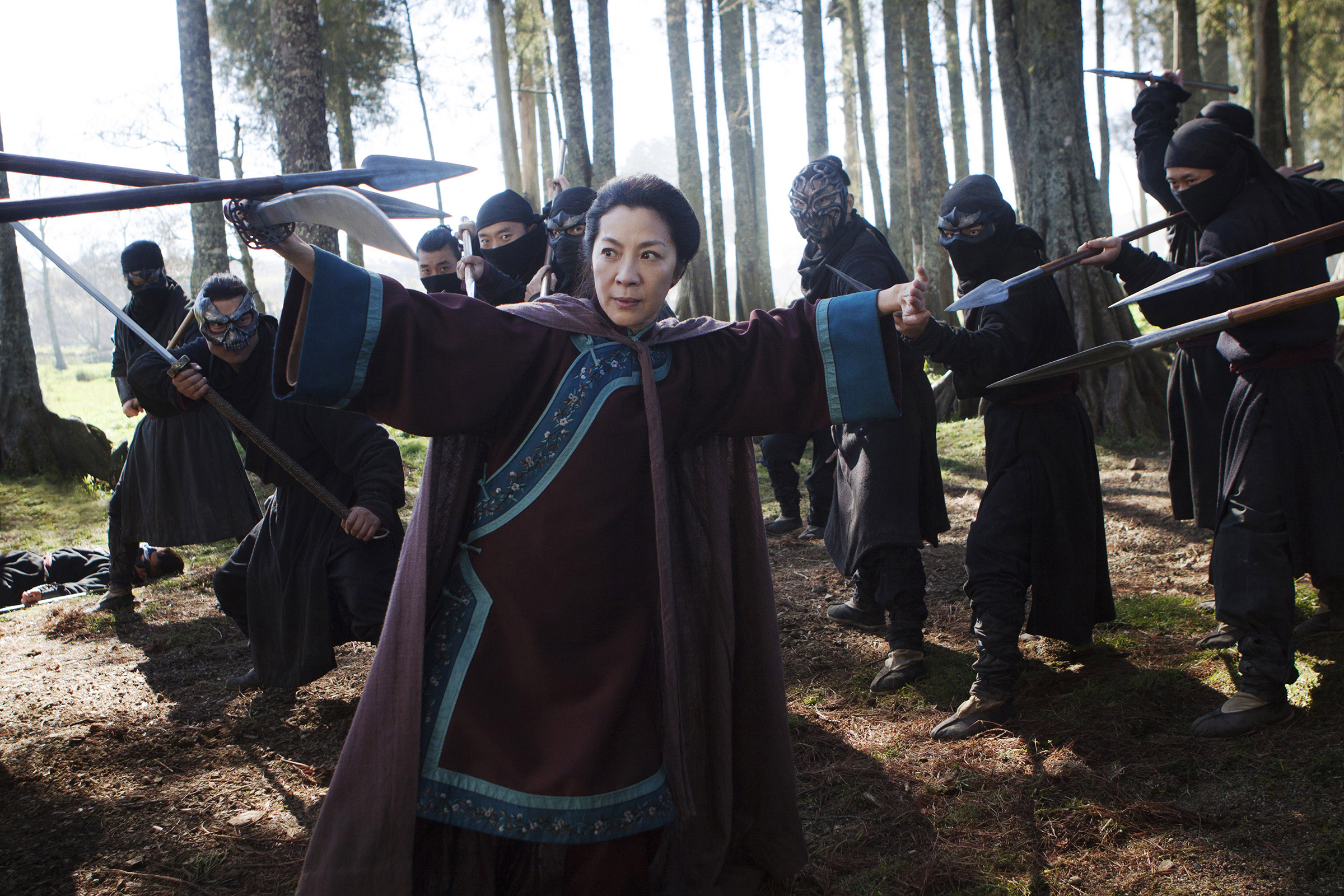To movie lovers who are also fans of the Hong Kong films of the 1990s, commonly recognized as that industry’s golden age, Michelle Yeoh’s recent Hollywood rise isn’t particularly surprising; some of us have grown long white Pai Mei-style beards waiting for it. In the Daniels’ existential action fantasy Everything Everywhere All at Once, Yeoh plays Evelyn, the stressed-out owner of a laundry facility who’s transported into a complex multiverse where she becomes an action hero. The performance has earned Yeoh an Academy Award nomination, most likely not because her martial arts moves are magnificent (she has always done most of her own stunts), but because she brings such a complex swirl of anxious gravity to her character. As far as the Academy is concerned, Yeoh is a sixtyish newcomer. But those who have loved her for years (including, clearly, Everything’s directors, Daniel Kwan and Daniel Scheinert) aren’t surprised that Hollywood is finally recognizing her as a star—even as we’re rolling our googly eyes over why it took so long.
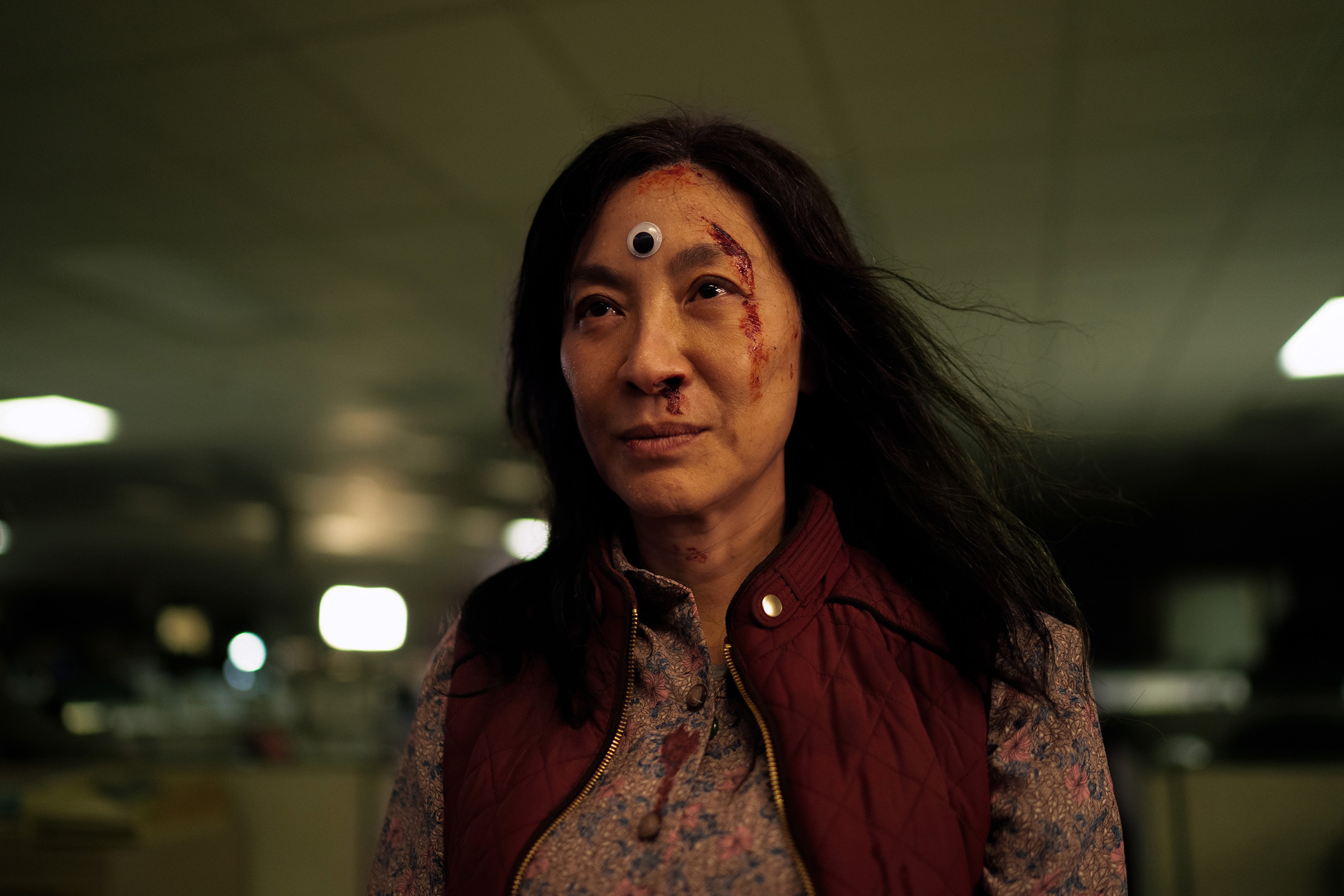
It’s not that Yeoh hasn’t been working steadily for years, even in movies widely released in the United States. The film that might have been her big breakthrough, but somehow wasn’t, is now being re-released in theaters in a restored 4k version: Ang Lee’s 2000 Crouching Tiger, Hidden Dragon is a gorgeously staged action epic, steeped in Chinese culture broadly and more specifically in the action-fantasy tradition known as wuxia, a genre of books, movies, and television set in ancient China and focusing on martial artists who have achieved almost godlike status through extensive training and spiritual discipline.
Read more: Michelle Yeoh Is TIME’s Icon of the Year
Yeoh is one of the film’s three stars, along with another staggeringly charismatic actor, ‘90s Hong Kong superstar Chow Yun-Fat, as well the superb Zhang Ziyi, a young newcomer at the time. The story, set in 19th century China, involves a master swordsman, Chow’s Li Mu Bai, who’s ready for retirement and has asked his longtime friend, Yeoh’s Shu Lien, a noble and highly respected warrior, to deliver his legendary weapon, known as the Green Destiny, to their benefactor in Beijing. Shortly after her arrival there, Shu Lien meets a seemingly demure maiden, Zhang’s Jen, who’s preparing for a marriage arranged by her family. The next day, the Green Destiny is stolen, possibly by a notorious bandit named Jade Fox, a theft that kicks off a chain of tragic events.
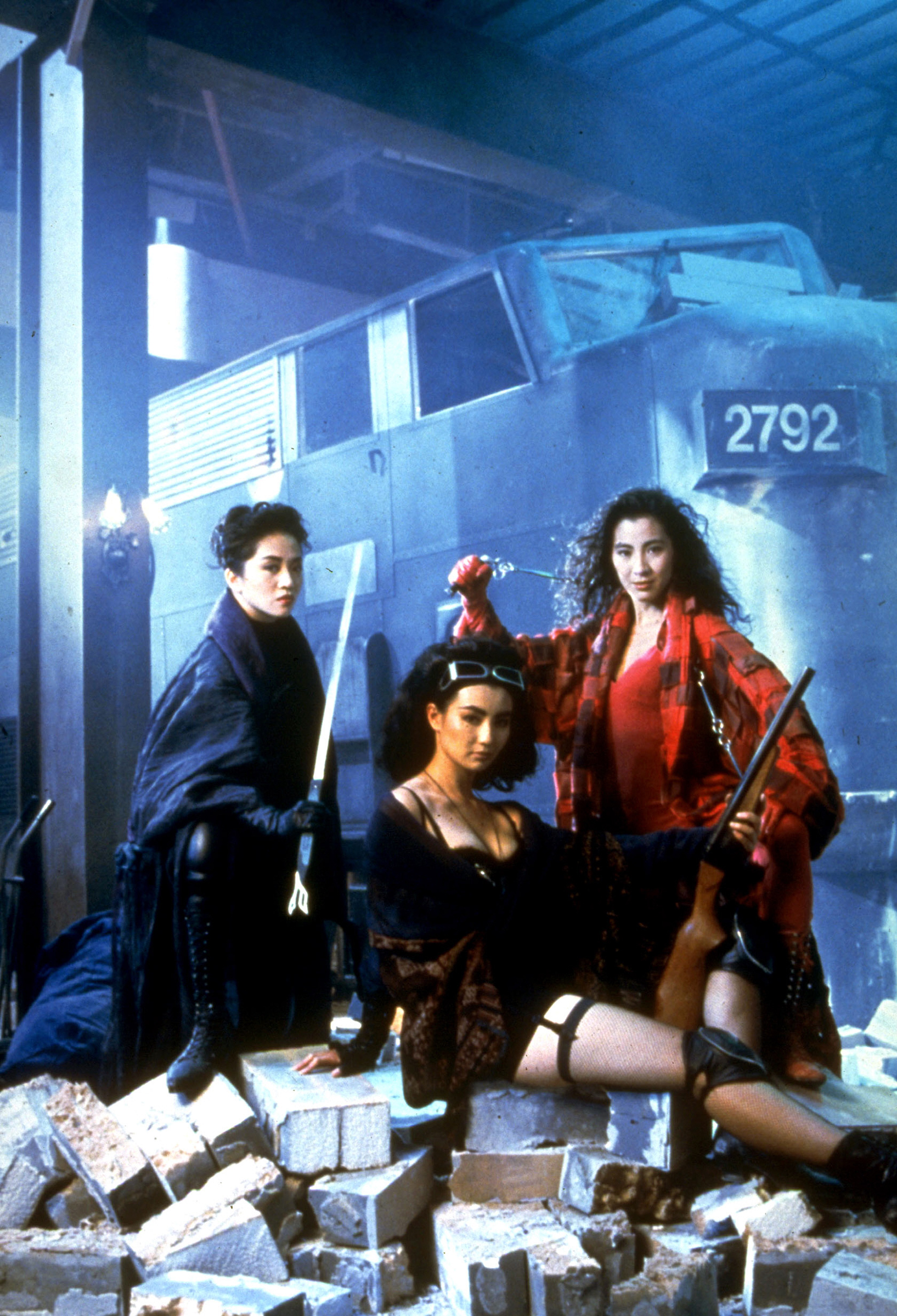
Crouching Tiger, in addition to featuring a number of astonishing martial arts sequences—many of them enhanced by traditional wuxia wirework, which creates the illusion that characters are floating through air—is built around two love stories: That of Jen and sexy bad-boy desert warrior Lo (Chang Chen), and the more muted current of desire connecting Shu Lien and Li Mu Bai. And here may lie the key to why it took so long for Yeoh to become a star in the United States. Though Crouching Tiger, produced overseas, became the highest-grossing foreign-language film in American history, its success seemed to be linked to its achievement as an action spectacle—an admittedly glorious one—rather than to the equally spectacular appeal of its stars. And because Yeoh, in particular, is so terrific in both the action scenes and the dramatic ones, she automatically had at least one strike against her: in addition to the fact that circa the early 2000s Hollywood barely knew what to do with terrific Asian performers—a pattern that’s only now beginning to change—Yeoh was simply too good at too many things. And an actor who can’t be easily categorized is far more likely to slip through the cracks.
Read more: Everything Everywhere All At Once May Be Too Trippy for Its Own Good—But Michelle Yeoh Still Dazzles
By the time she made Crouching Tiger, Yeoh—who was born in Malaysia and trained for a career as a ballet dancer before she was sidelined by an injury—had already appeared in a Bond film, playing a Chinese secret agent in 1997’s Tomorrow Never Dies; her character was framed as an equal to Bond, and she made the role her own. Other offers followed—but not the right ones. Yeoh turned down any role she saw as demeaning to Asian women, and it’s easy to imagine how many of those came her way. Crouching Tiger, Hidden Dragon was the next big role to put her before American audiences, and though it opened certain doors—she would go on to appear in films like Rob Marshall’s 2005 adaptation of Memoirs of a Geisha, Danny Boyle’s poetic 2007 sci-fi fantasy Sunshine and John M. Chu’s extravagant 2018 romantic comedy Crazy Rich Asians—that one big starring role in a Hollywood movie was elusive until the Daniels came along.
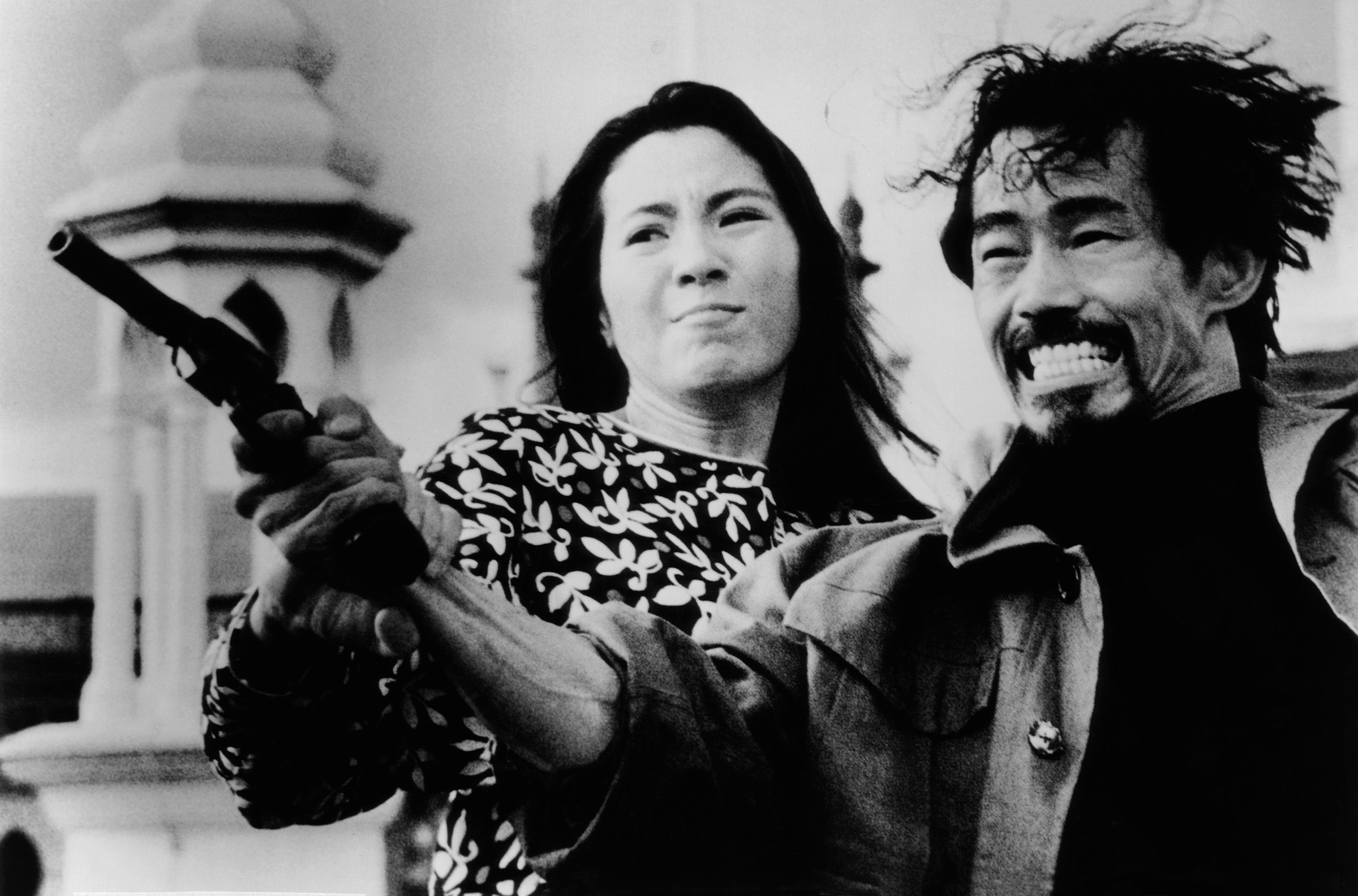
One of the many pluses of Yeoh’s newfound fame is that there are some 30 years’ worth of pleasurable performances for new fans to dig into. In Jackie Chan’s 1992 action-comedy extravaganza Supercop, directed by Stanley Tong, Yeoh performs a stunt so awe-inspiring, and so obviously dangerous, that you might feel the urge to watch it through splayed fingers: mounted on a motorcycle speeding alongside a moving train, Yeoh gradually revs up, gains momentum as she rumbles up a ramplike embankment, and guides the bike smoothly onto the train’s roof. Just seconds after she rolls off the seat, the bike rattles over the edge—she looks none the worse for the wear, though it’s doubtful we could say the same about the bike.
And in Johnny To’s marvelous, and marvelously silly, 1993 action fantasy Heroic Trio, Yeoh plays Ching, a future superhero who’s temporarily in thrall to a powerful, mystical master who’s stealing babies as part of a plot to install a new Chinese emperor. Yeoh’s stuntwork is astonishingly fluid, but she gives superb weight to her more serious scenes, too. Not to mention that her noirish wardrobe is killer: it includes a red coat that appears to be woven from strips of silk, taking the wind like a sail as she leaps and twirls through the air.
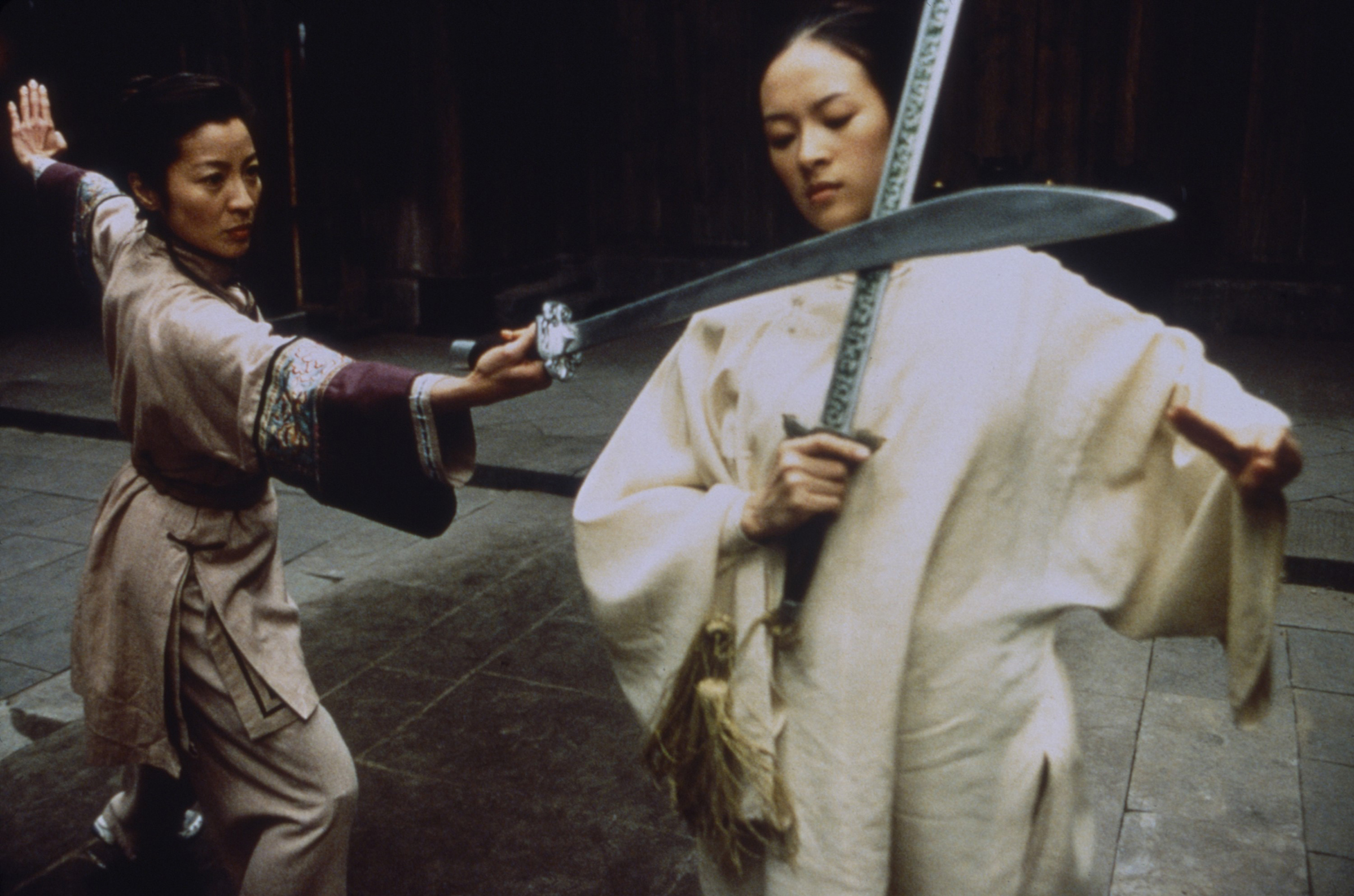
Movies like those made Yeoh a star in Asia, and it’s easy to see why. In addition to her breathtaking physical grace, she has always had, and still has, a movie-star face in the old-fashioned sense of the word—the camera revels in it. In Crouching Tiger, Yeoh gets plenty of chances to soar over rooftops and to spar with adversaries, her determination almost visibly coursing through her veins and her muscles. But she may be even better in the movie’s quieter moments: Shu Lien and Li Mu Bai have been close for years, but circumstances prevent them from becoming romantically involved. Every time he enters her orbit, her expression shifts subtly, betraying not just three or four mixed emotions but shades of a thousand. There’s wistfulness there, and a kind of cautious joy. She also gives you the sense that Shu Lien is measuring the width of the chasm between duty and longing, unsure if she can safely leap across, fearing she might fall into its depths. That’s a lot for one face to reveal. Of course, you could easily name plenty of other actresses capable of that degree of subtlety. But there’s probably only one who could also ride a motorcycle onto a moving train.
More Must-Reads from TIME
- Cybersecurity Experts Are Sounding the Alarm on DOGE
- Meet the 2025 Women of the Year
- The Harsh Truth About Disability Inclusion
- Why Do More Young Adults Have Cancer?
- Colman Domingo Leads With Radical Love
- How to Get Better at Doing Things Alone
- Michelle Zauner Stares Down the Darkness
Contact us at letters@time.com
